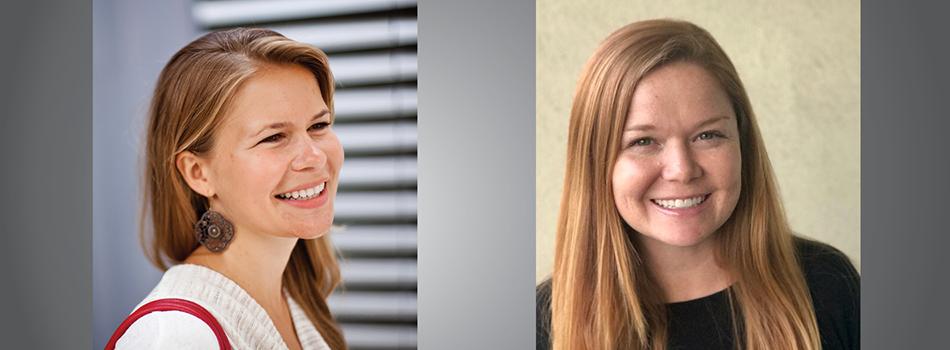
May 2017
The School of Social Ecology has hired two new assistant professors, Jenna Riis and Kate Kuhlman, to work in the Department of Psychology and Social Behavior, effective July 1, 2017. Both plan to develop research collaborations with the Institute for Interdisciplinary Salivary Bioscience Research, which uses saliva to better understand important issues such as stress, heart disease risk, animal wellness, infectious diseases and much more.
Riis earned her PhD at Johns Hopkins Bloomberg School of Public Health in Baltimore, MD. For the last couple years, she has worked as an early childhood mental health specialist at the New York City Department of Health and Mental Hygiene.
Her research uses salivary biomeasures to advance child health research, and examine the effects of early-life adversity. She also seeks to use salivary biomarkers to broaden the range of lines of study for child health researchers, and measure the effectiveness of intervention programs on child health. Her research may help identify, prevent and treat the effects of childhood adversity.
Kuhlman earned her PhD in clinical psychology at the University of Michigan, and has worked as a postdoctoral fellow at University of California, Los Angeles for the past few years.
Her research seeks to mitigate the lifelong health disparities that are associated with childhood trauma, maltreatment and unpredictable family environments. She measures responses to stress at the behavioral, cognitive, molecular and even intracellular levels, and examines how those responses affect depression and other disorders. By identifying predictors of resilience among at-risk youth, she also seeks to inform intervention programs.
